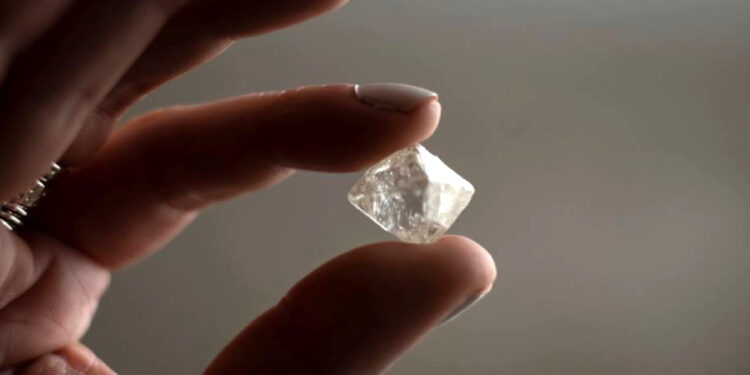Botswana Offers U.S. Duty-Free Access to its Diamonds in Exchange For 0% Tariff
Botswana is close to reaching an agreement with the United States that would allow its diamonds to be imported duty-free, giving the landlocked country a potential economic lifeline amid mounting pressure from U.S. tariffs that have strained its diamond-dependent economy.
Speaking to the BBC about Botswana’s ongoing trade discussions with the United States, President Duma Boko said, “The negotiations are in an advanced stage. We are on the verge of reaching an agreement.”
The U.S. currently imposes a 15% tariff on Botswana diamonds, which only applies to stones cut and polished in the country and imported unset. Diamonds processed abroad, such as in India, continue to face a 50% import tax, while only diamonds cut in Belgium and Canada enter the U.S. duty-free.
These tariffs have heavily impacted Botswana’s diamond sector, a cornerstone of the national economy. In 2023, exports to the U.S. alone generated around $500 million, supporting jobs, revenue, and economic stability. However, the sector has recently seen diamond sales decline by 50% due to falling global demand.
In a major development, amid the absence of a lucrative offer from Botswana, the United States imposed a 37% tariff on the country’s imports in August 1. The duty combines a 10% baseline tariff introduced in April with an additional 27% under new reciprocal measures.
At the time, President Duma Boko warned that the move threatens not only Botswana’s diamond market but also broader economic growth across Africa. “These punitive measures threaten the sustainability of Botswana’s diamond industry and present a serious obstacle to broader economic growth across Africa,” he said.
However, the southern African country has taken a proactive approach to initiate negotiation with Washington.
During his visit to the U.S., Boko met with Secretary of State Marco Rubio, stating: “We have asked for zero tariffs between Botswana and the United States. That is what we’ve asked for, and we’ve stated it plainly. We will continue to articulate and defend this position to the United States.”
He added, “We are working around the clock, and if Donald Trump calls us on the matter, I will not hesitate to respond.”
According to Boko, American officials argue that while Botswana’s goods enjoy access to the U.S. market, American exports and services are not making reciprocal inroads. “Because of this trade imbalance, they argue that we must be subjected to tariffs. It’s a reality we must acknowledge and engage on with the Americans,” he said.
In september, the country”s Vice President Ndaba Gaolathe and Trade Minister Tiroeaone Ntsima submitted a proposal titled “Botswana Strategic Bilateral Engagement on U.S. Reciprocal Tariffs” to U.S. officials, offering priority access to key mineral reserves while inviting U.S. investment in energy, technology, infrastructure, and health.
“The government would ease entry through the Botswana One Stop Service Center, streamlining permits and approvals. Botswana has also pledged to reduce non-tariff barriers and accept certain U.S. product standards to deepen trade relations,” the document stated.
Botswana, the world’s second-largest diamond producer after Russia, has made its intentions known to the United States and is awaiting Washington’s response on a potential deal, aiming to protect its diamond industry and strengthen Africa’s role in mineral value addition.








